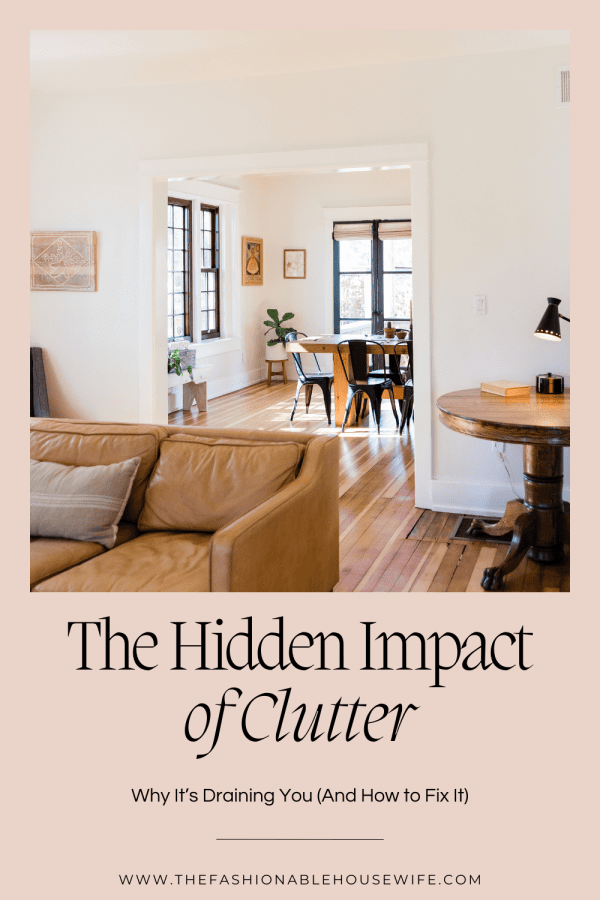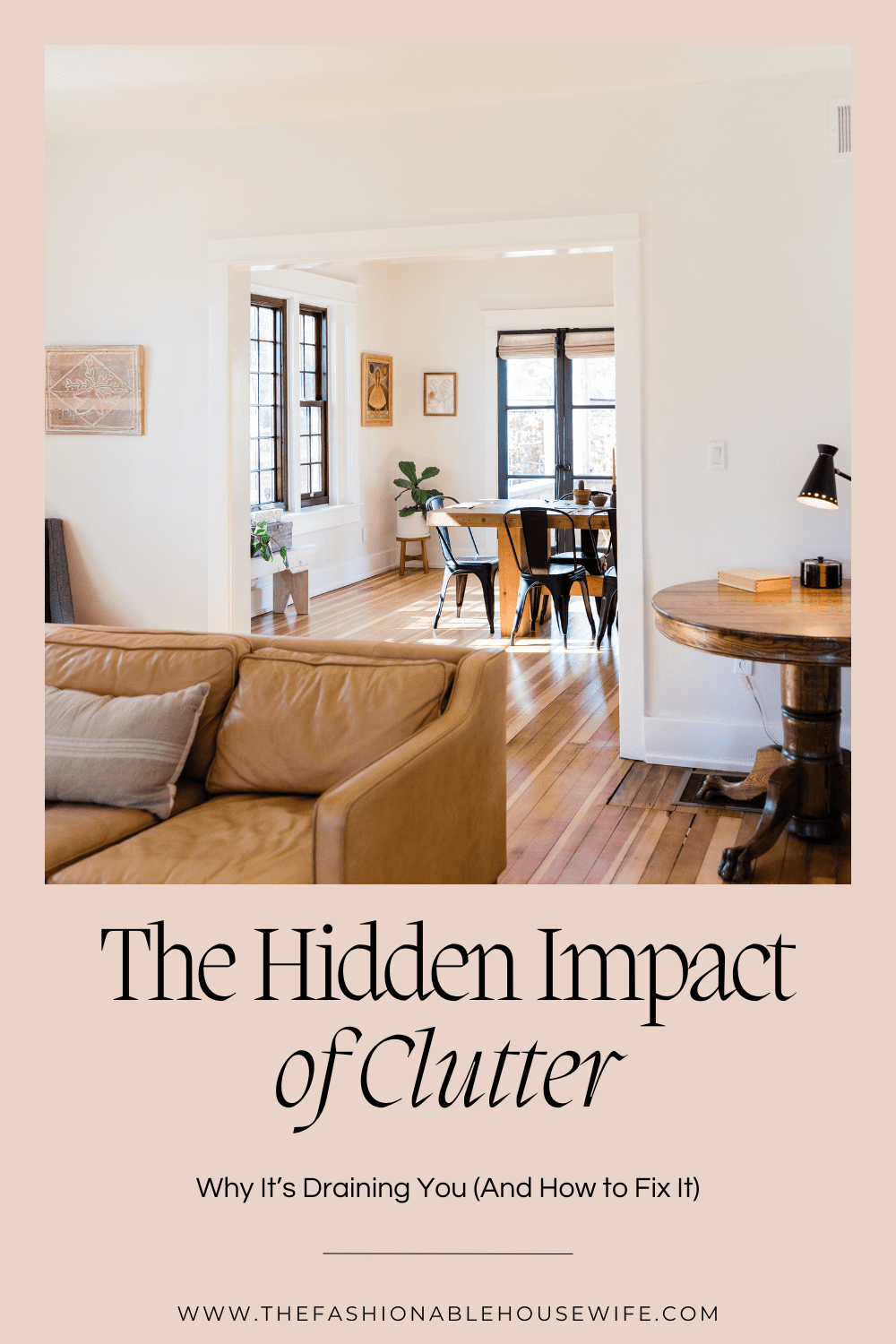The Hidden Impact of Clutter: Why It’s Draining You (And How to Fix It)

If you’ve ever looked around your space and felt overwhelmed, you’re not alone. Clutter has a way of creeping in, filling every available surface until it starts to feel normal. But here’s the thing—clutter isn’t just about mess. It affects your focus, your mood, and even your energy levels. What seems like a small pile of papers or an overflowing drawer could be adding unnecessary stress to your life. The good news? You don’t have to live like this. A few simple changes can completely shift the way you feel in your home.
How Clutter Is Secretly Exhausting You
You might think a little mess isn’t a big deal, but clutter is more than just a visual problem. It actually impacts your brain and emotions in ways you may not realize.
It Creates Mental Overload
Every time you see clutter, your brain has to process it. Whether you realize it or not, your mind is constantly working to sort through the visual chaos, making it harder to focus. A cluttered space leads to a cluttered mind, making tasks feel more difficult and draining your mental energy. This is why you should consider hiring a dumpster, as this is incredibly useful for decluttering, enabling you to get rid of everything you don’t need so you can have a clear mind.
It Adds Unnecessary Stress
Studies have shown that messy environments can increase stress hormones like cortisol. Ever notice how a messy kitchen makes cooking feel more overwhelming? Or how an untidy bedroom makes it harder to relax? That’s because clutter sends signals to your brain that there’s still work to be done, keeping you in a state of low-level stress.
It Steals Your Time
How much time have you spent looking for lost items in the past week? Whether it’s your keys, an important document, or that one shirt you love, clutter makes it harder to find what you need. Over time, those wasted minutes add up, leaving you feeling frustrated and behind schedule.
It Lowers Productivity
Working in a cluttered space can make even simple tasks feel like a challenge. Your brain is constantly trying to filter out distractions, making it harder to concentrate. A clear, organized space, on the other hand, allows you to work more efficiently and with less effort.
How To Declutter Without the Overwhelm
The idea of decluttering your entire home might sound exhausting, but you don’t have to tackle everything at once. The key is to start small and build momentum. Here’s how:
Start with Just 5 Minutes
If decluttering feels overwhelming, set a timer for just five minutes. Pick a small area—a single drawer, a corner of your desk, or one shelf. The goal is just to get started. You’ll often find that once you begin, you’ll want to keep going.
Use the “One-Year Rule”
Haven’t used it in a year? You probably don’t need it. This applies to clothes, kitchen gadgets, books, and even random household items. If it’s been sitting untouched for months, chances are you won’t miss it.
The “One In, One Out” Rule
To prevent clutter from creeping back in, adopt a simple rule: for every new item you bring into your home, get rid of one. Bought a new shirt? Donate an old one. Picked up a new gadget? Let go of something that’s collecting dust. This keeps things balanced and prevents clutter from piling up again.
Create Homes for Everything
A big reason clutter builds up is because items don’t have designated spots. Instead of tossing things onto surfaces, make sure every item has a home. Keep a basket for mail, a tray for keys, and labeled storage for everything else. The easier it is to put things away, the less likely clutter will return.
Declutter by Category, Not Room
Instead of trying to clean out a whole room, focus on one category at a time. Clothes, books, paperwork, sentimental items—sorting by type helps you see exactly how much you have and makes decisions easier.
The Unexpected Benefits of Decluttering
Once you start clearing the excess, you’ll notice positive changes in more than just your home.
- More Energy – Without clutter constantly draining you, you’ll feel lighter and more motivated.
- Better Mood – A tidy space reduces stress and creates a sense of calm.
- Easier Mornings – Getting dressed, making breakfast, and heading out the door becomes smoother when everything is in its place.
- Increased Productivity – A clean space helps you focus, making work and daily tasks feel more effortless.
- More Room for What Matters – Less clutter means more space for the things you actually use and love.
A Decluttered Home, A Clearer Mind
Decluttering isn’t just about having a tidier home—it’s about creating a space that supports your well-being. When your surroundings are in order, life feels easier, decisions feel simpler, and stress melts away. The best part? You don’t have to do it all in one day. Small, consistent changes add up, making a lasting difference in how your home—and your mind—feels.

